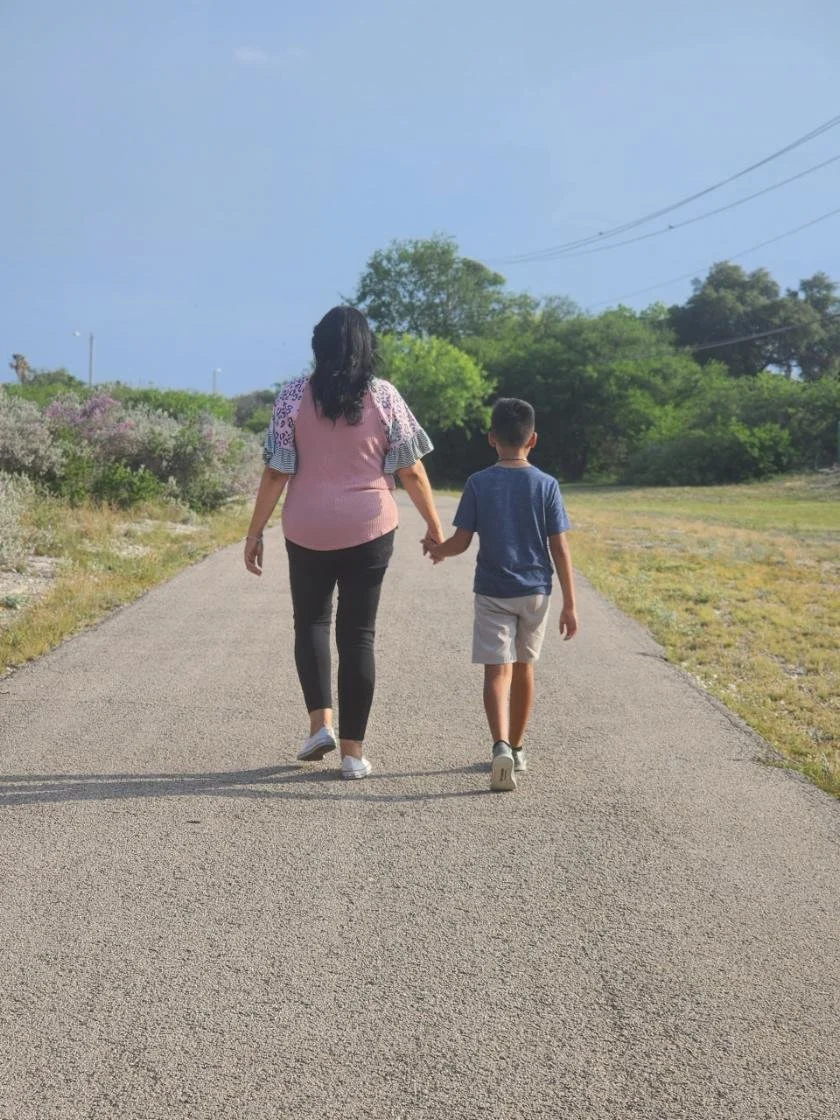
Creating Rural Resilience
TTUHSC El Paso opens virtual doors to mental health care in West Texas
By Leonard Martinez
Mental health help isn’t always available down the street.
Mrs. Medina lives in remote Val Verde County in Southwest Texas, and finding in-person mental health care for her 9-year-old son requires a 2 1/2 hour drive.
But thanks to Texas Child Health Access Through Telemedicine (TCHATT) and the Child Psychiatry Access Network (CPAN), Medina’s family and others across West Texas can now use telemedicine to easily access mental health care for their children.
The state-funded programs are part of the Texas Child Mental Health Care Consortium, established in 2019 by the Texas Legislature. Texas Tech University Health Sciences Center El Paso serves as the Far West Texas hub for the consortium.
Medina’s son’s mental health issues started when his uncle and grandfather were lost to COVID-19. The trauma caused him to distance himself from social settings.
After a year of participating in the programs, Medina’s son is doing better. He’s currently in the Rural Telepsych for Youth program, which offers continued mental health sessions after a patient’s TCHATT eligibility ends. Rural Telepsych for Youth is supported by grants from Blue Cross and Blue Shield of Texas and the Carl B. and Florence E. King Foundation.
“The tools and techniques he’s learned, such as self-soothing, are amazing,” Medina said. “For example, if we go to a store, he’ll let us know he needs time to use his coping techniques before heading inside.”
TCHATT and CPAN are funded by the state of Texas. Rural Telepsych for Youth offers continuation of services after a patient’s eligibility for TCHATT and CPAN ends.
One in seven children nationwide will experience a mental, behavioral or developmental disorder during childhood, according to studies.
In rural communities, barriers to care often are steep and include financial hardships, lack of transportation, and lack of providers, said Dr Sarah Martin, Child and Adolescent Psychiatrist, and the Medical Director of the Texas Child Mental Health Care Consortium, and Chief of the Child Adolescent Psychiatry Division at TTUHSC El Paso.
“Families in rural communities often experience difficulties that increase the risk of a child developing a mental health disorder and/or can limit their access to care,” Dr. Martin said.
She said the TCHATT and CPAN programs coordinate with schools, which helps increase accessibility to care and allows more children to receive support.
The virtual approach of TCHATT and CPAN is transformative for Texas residents living far from providers. TTUHSC El Paso through TCHATT reaches Far West Texas school districts in a vast geographic region that’s home to approximately 200,000 children, while CPAN is responsible for a 16-county network along a 480-mile stretch of the Texas-Mexico border from El Paso to Eagle Pass.
“Our Val Verde community is small, and mental health care here and in surrounding counties is scarce,” Medina said. “Getting an appointment was difficult that summer — a month's wait, or I was put on a waiting list.”
Medina reached out to the school counselor, who directed her to TCHATT.
"The program provided my son with great benefits,” Medina said. “It was one-on-one, with no interruptions, and basically face-to-face. Meetings can be held at home, in counselors' offices, or by phone. They’re easily accessible and private.”
With stressful events seeming to occur more often in recent years, the need for mental health care for adolescents has increased.
“After mass casualty events such as shootings, as well as, other stressors like the COVID-19 pandemic, anxiety levels increase. Sometimes children are able to function with a higher level of anxiety, but others will have symptoms that need treatment,” Dr. Martin said. “The sooner a person receives treatment, the more complete their recovery can be and the quicker they’ll feel better.”
For Medina, the telemedicine programs have been helpful beyond measure.
"Mental health programs are essential to everyday life, and everyone should have access to them,” Medina said. “I’m grateful and blessed my child can use this program to help his journey through life.”
“Our Val Verde community is small, and mental health care here and in surrounding counties is scarce.”
— Mrs. Medina





